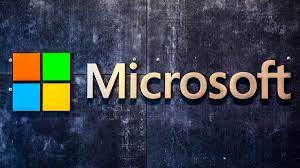
ASP.NET
We provide advanced virtual learning opportunity of a developer platform with tools and libraries for building any type of app, including web, mobile, desktop, games, IoT, cloud, and microservices.
ASP.NET MVC Course Content
Module 1: Introduction to ASP.NET MVC
Skills: Basic understanding of web development concepts
Topics:
What is ASP.NET MVC?
MVC architecture pattern
Setting up an ASP.NET MVC development environment
Module 2: Getting Started with ASP.NET MVC
Skills: Creating a basic ASP.NET MVC application
Topics:
Creating a new MVC project
Understanding the project structure
Adding controllers, views, and models
Module 3: Controllers in ASP.NET MVC
Skills: Creating and working with controllers
Topics:
Creating controller actions
Passing data from controllers to views
Handling user input and form submissions
Module 4: Views in ASP.NET MVC
Skills: Creating and using views in ASP.NET MVC
Topics:
Creating views with Razor syntax
Working with layout pages
Using HTML helpers
Module 5: Models in ASP.NET MVC
Skills: Working with models to represent data
Topics:
Creating model classes
Passing data from controllers to views using models
Model validation
Module 6: Routing in ASP.NET MVC
Skills: Understanding and configuring routing in ASP.NET MVC
Topics:
Understanding the routing mechanism
Configuring custom routes
Attribute routing
Module 7: Data Access with Entity Framework
Skills: Accessing databases using Entity Framework in ASP.NET MVC
Topics:
Setting up Entity Framework in an MVC application
Creating and using DbContext
Querying and manipulating data using LINQ
Module 8: Forms and Data Validation
Skills: Working with forms and validating user input
Topics:
Creating forms in MVC views
Using data annotations for validation
Handling validation errors
Module 9: Authentication and Authorization
Skills: Implementing authentication and authorization in ASP.NET MVC
Topics:
Using ASP.NET Identity for user authentication
Implementing role-based authorization
Securing MVC controllers and actions
Module 10: Web APIs in ASP.NET MVC
Skills: Building and consuming Web APIs in ASP.NET MVC
Topics:
Creating Web API controllers
Consuming Web APIs from MVC views
Authentication and authorization in Web APIs
Module 11: Client-Side Development
Skills: Implementing client-side functionality using JavaScript and jQuery
Topics:
Using jQuery to enhance user interfaces
Making AJAX requests
Working with client-side libraries and frameworks (e.g., Bootstrap)
Module 12: Testing and Debugging
Skills: Testing and debugging ASP.NET MVC applications
Topics:
Unit testing controllers and actions
Debugging techniques for MVC applications
Using debugging tools and utilities
Module 13: Deployment and Performance Optimization
Skills: Deploying ASP.NET MVC applications and optimizing performance
Topics:
Deployment strategies for MVC applications
Performance optimization techniques
Monitoring and profiling MVC applications
Module 14: Real-World Projects
Skills: Applying ASP.NET MVC skills to real-world projects
Topics:
Working on MVC projects from start to finish
Solving real-world problems with MVC
Collaborating with team members using version control systems
ASP.NET MVC Learning Roadmap
Basic Concepts: Start by learning the basics of ASP.NET MVC architecture and its components.
Getting Started: Create a basic MVC application and understand the project structure.
Controllers: Learn how to create and work with controllers in MVC.
Views: Understand how to create views using Razor syntax and work with layout pages.
Models: Learn how to create and use models in MVC applications.
Routing: Understand the routing mechanism in MVC and configure custom routes.
Data Access: Learn how to access databases using Entity Framework in MVC applications.
Forms and Validation: Understand how to create forms in MVC views and validate user input.
Authentication and Authorization: Implement user authentication and authorization in MVC applications.
Web APIs: Learn how to create and consume Web APIs in MVC applications.
Client-Side Development: Implement client-side functionality using JavaScript and jQuery.
Testing and Debugging: Learn how to test and debug MVC applications.
Deployment and Performance Optimization: Understand deployment strategies and performance optimization techniques.
Real-World Projects: Apply your ASP.NET MVC skills to real-world projects to gain practical experience.
This roadmap and course content will help you build a strong foundation in ASP.NET MVC and prepare you for a career as an ASP.NET MVC developer.
Enroll For Course Now